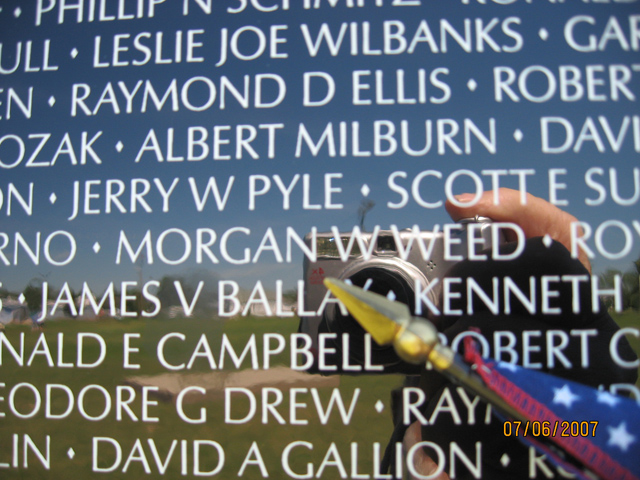National Standard Lodge Created
In 1957 the lodge re-charter process and forms were changed from an information device to a “policy compliance” agreement.
Questions regarding ceremonies, membership, administration, rules, adults, and funds were incorporated, requiring a “yes” or “no” answer, thus establishing the first “standards” for lodges. In 1960, a total of 16 questions were developed as part of a lodge training effort. These questions were listed for “appraising the operation of an Order of the Arrow lodge” and became the first formal set of standards provided to lodges.
In 1968, based mostly on the 16 questions, a formal National Standard Lodge (NSL) program was established. In the initial rollout, only three lodges earned NSL status, largely due to the 50% Brotherhood requirement, which only eight lodges achieved. By 1970, 71 lodges (out of 488 total) were National Standard Lodges. In 1978, the program was replaced with the “Lodge Achievement Program” and then later the National Quality Lodge Program.
In 2006, a Quality Lodge pin to recognize the efforts of Arrowmen was introduced with proceeds from the Quality Lodge pin sales going to the Order’s Endowment fund.
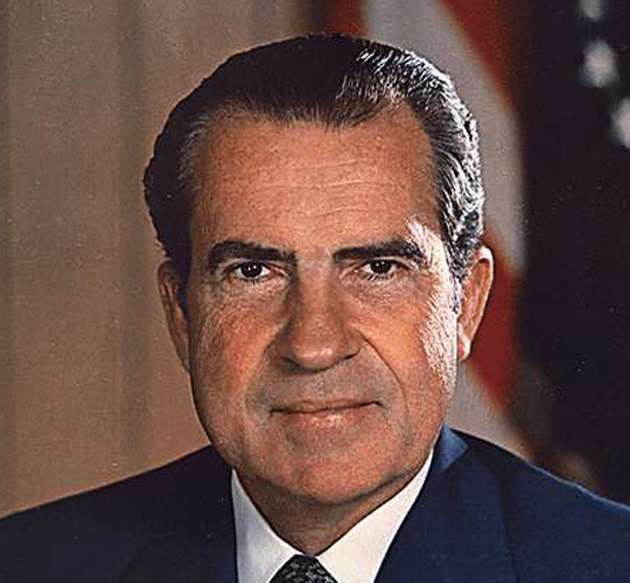 Our 37th President was a former Vice President, Lawyer, U.S. Representative, and Naval Officer (Lieutenant Commander) in World War II. He was re-elected in 1972 in one of the largest landslide victories in U.S. history, but the Watergate Scandal marred his second term and Nixon became the only President to be forced to resign from office in disgrace or face certain impeachment and expulsion. Richard Nixon was present for two
Our 37th President was a former Vice President, Lawyer, U.S. Representative, and Naval Officer (Lieutenant Commander) in World War II. He was re-elected in 1972 in one of the largest landslide victories in U.S. history, but the Watergate Scandal marred his second term and Nixon became the only President to be forced to resign from office in disgrace or face certain impeachment and expulsion. Richard Nixon was present for two 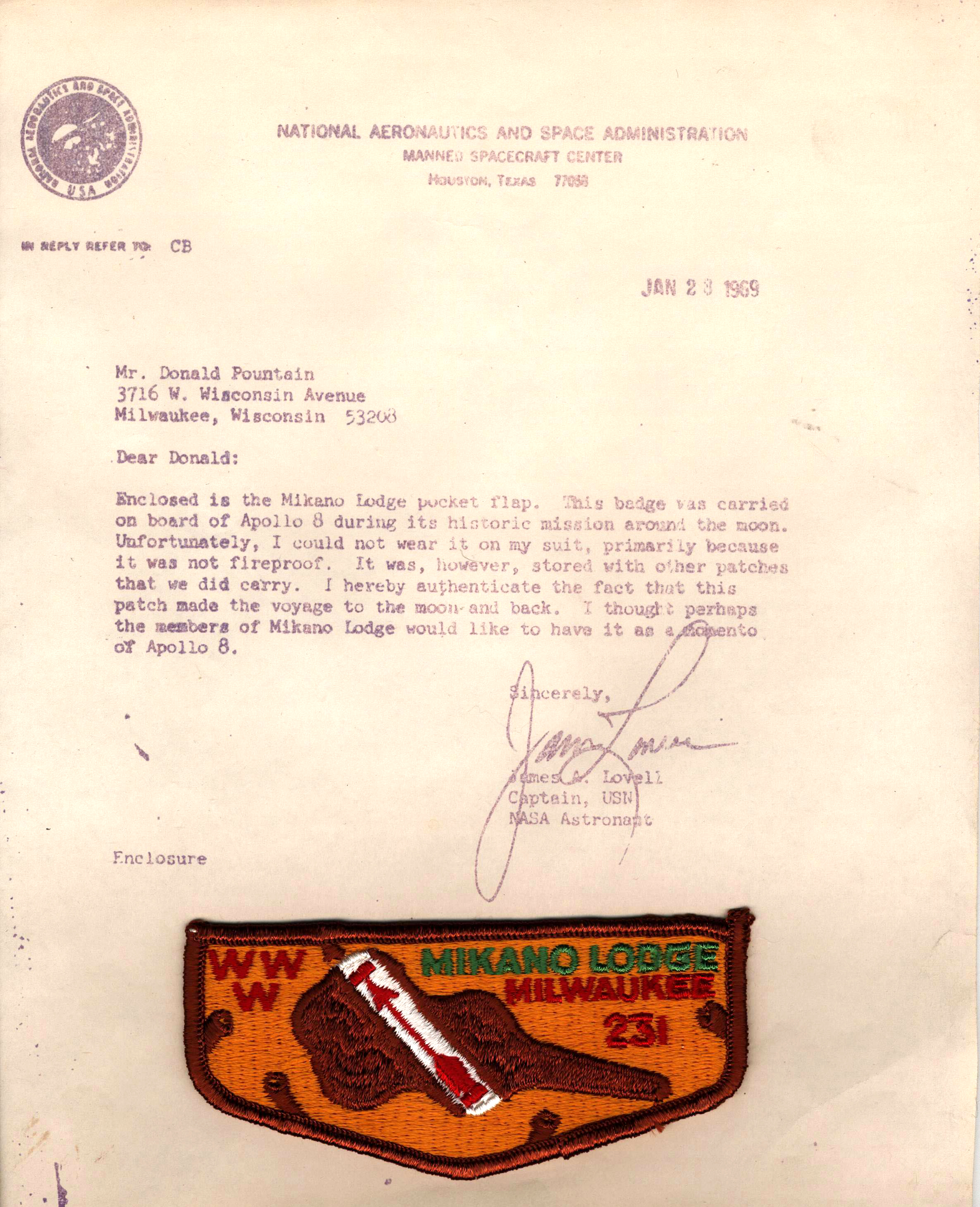
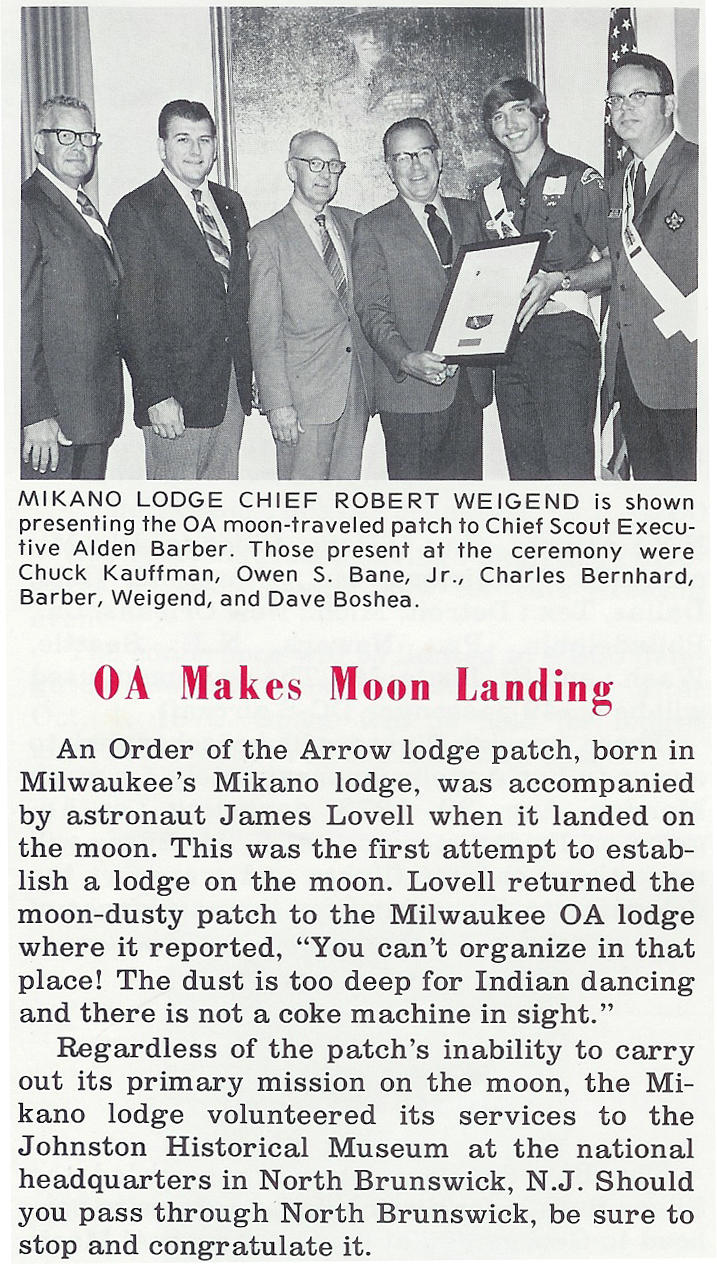
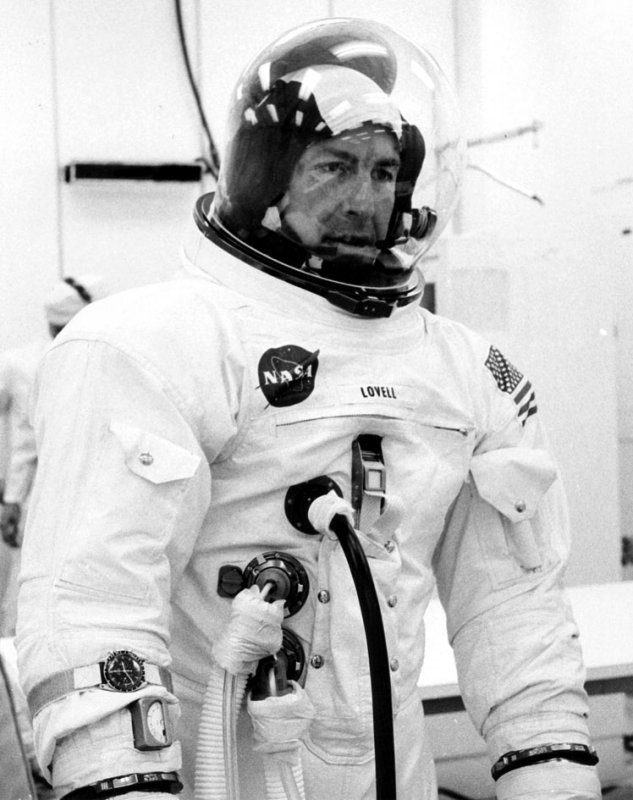
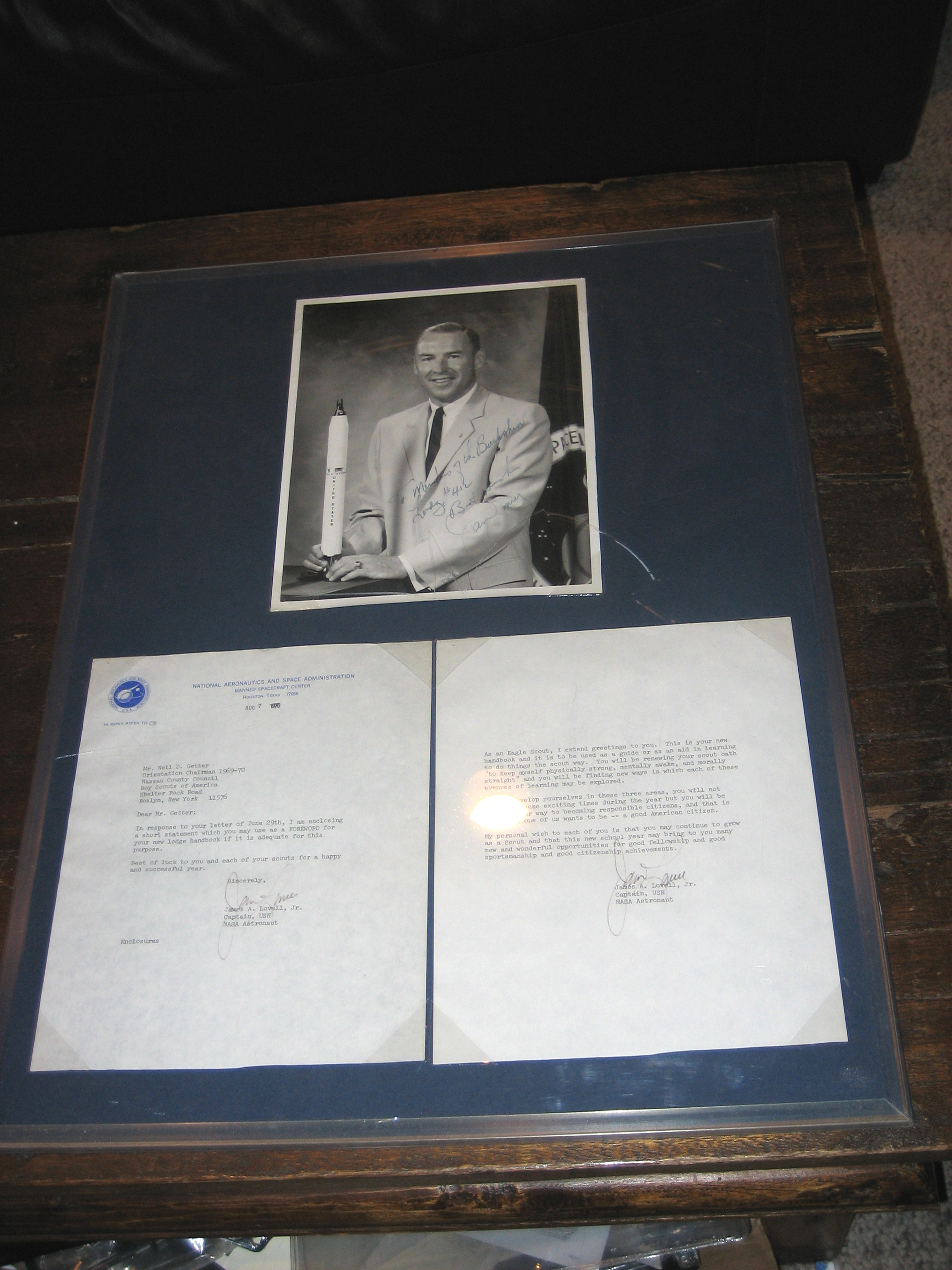
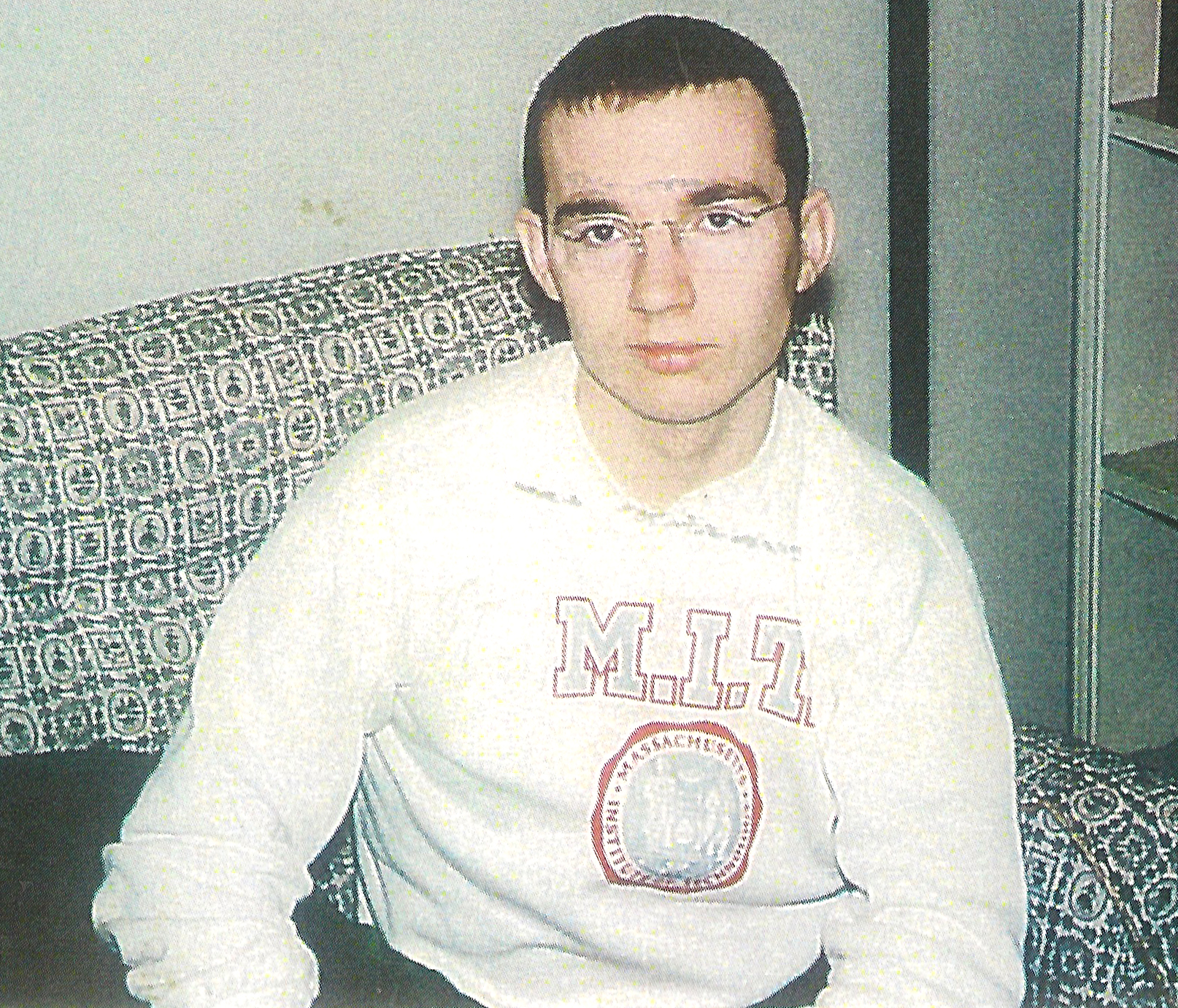
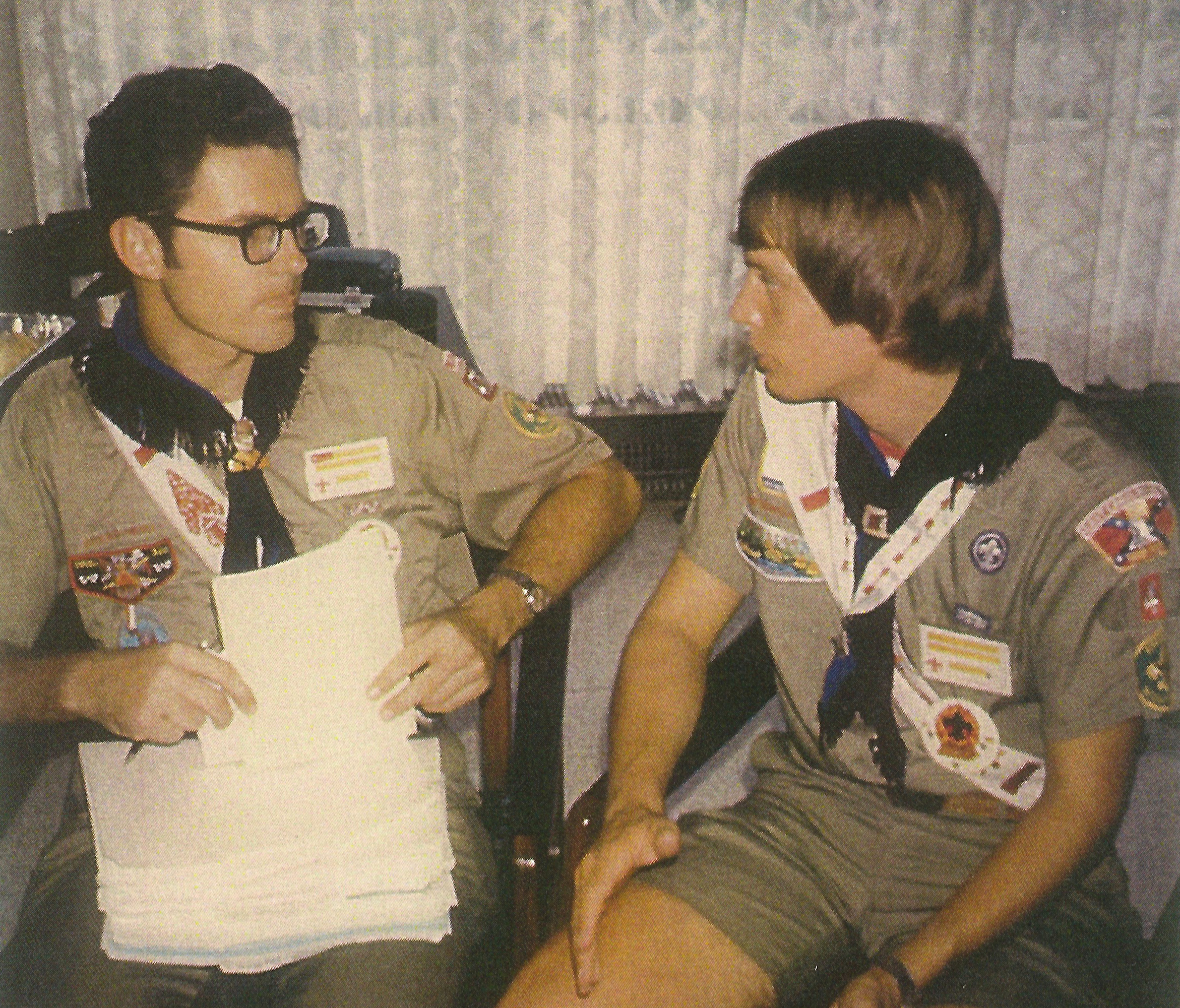
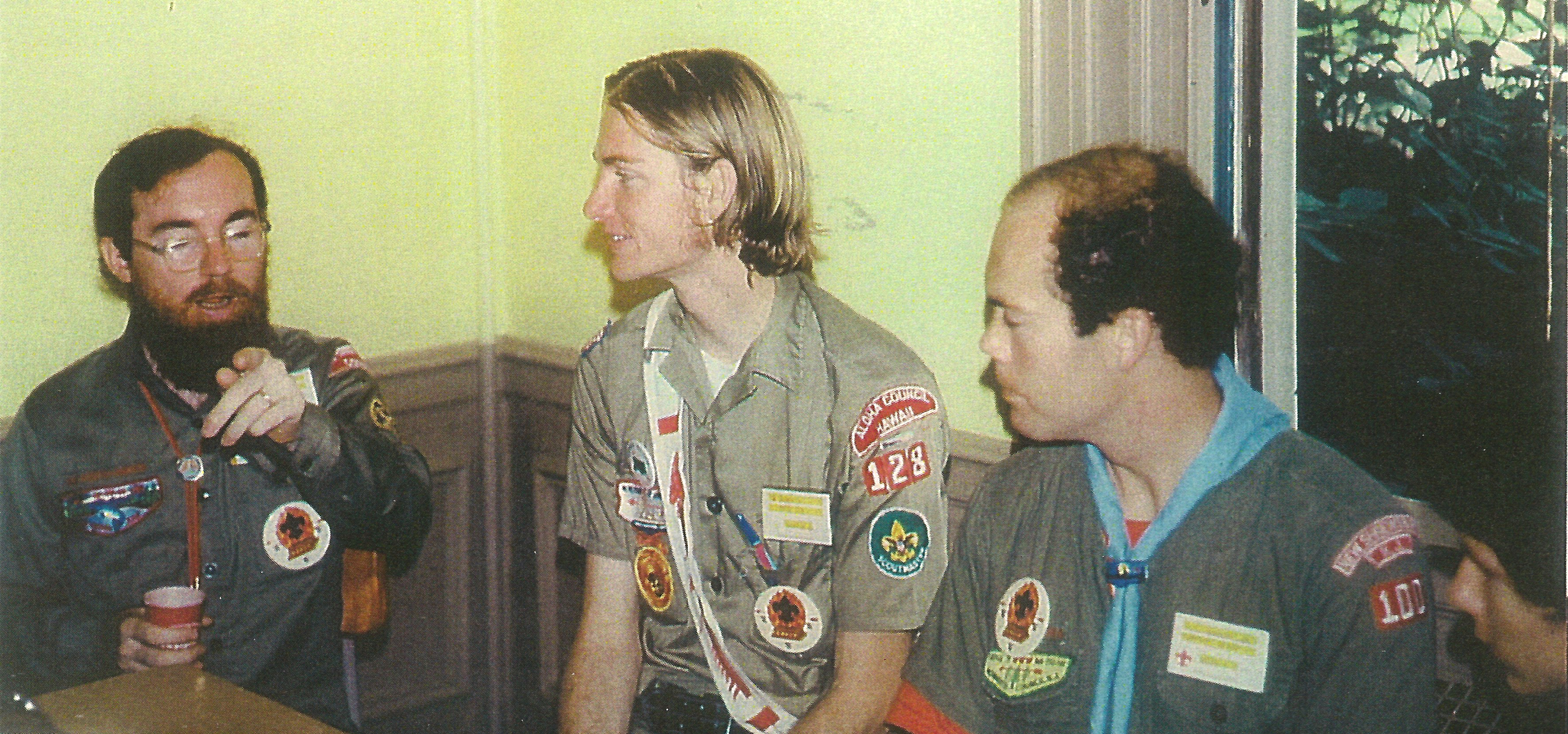
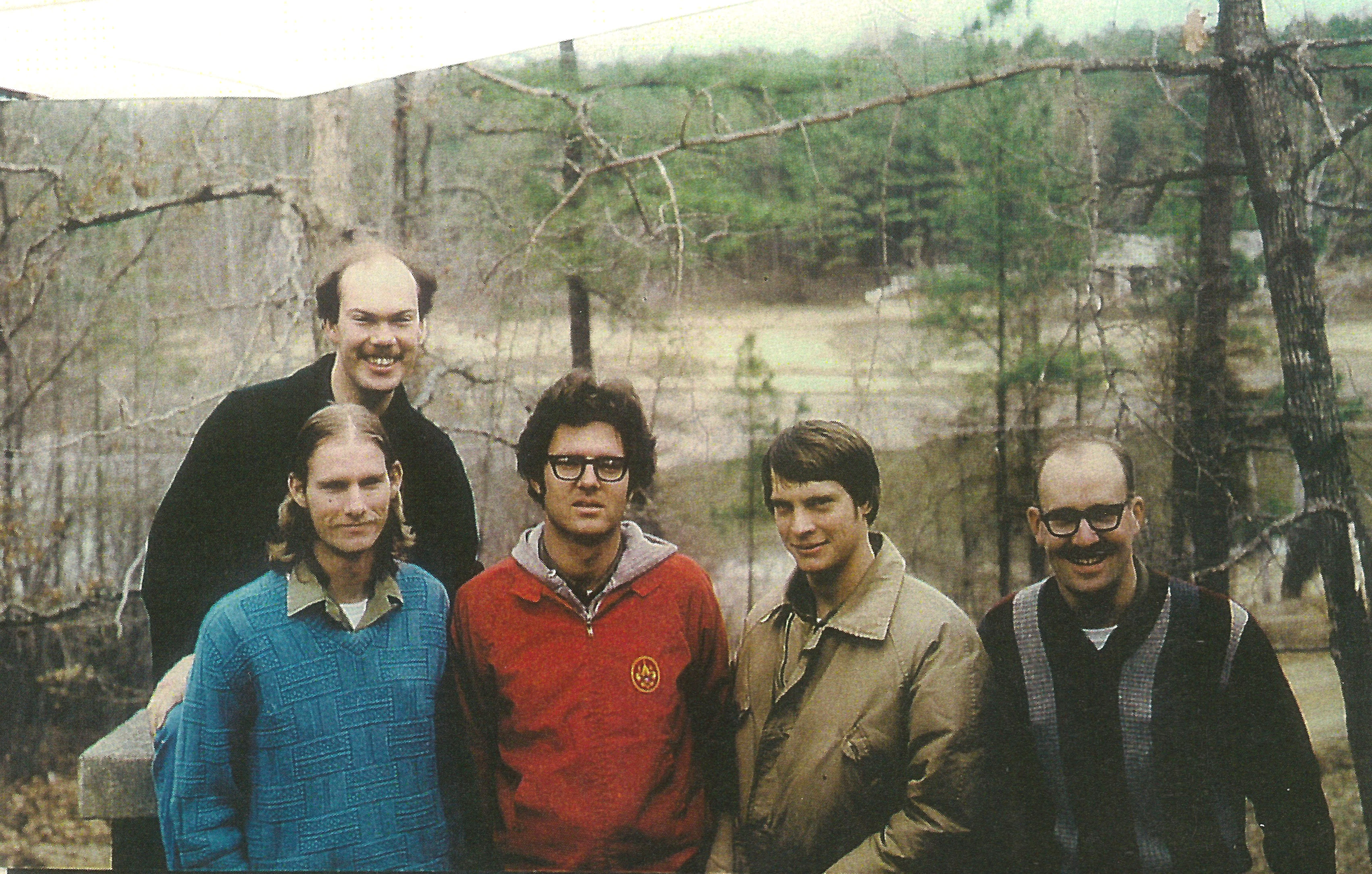
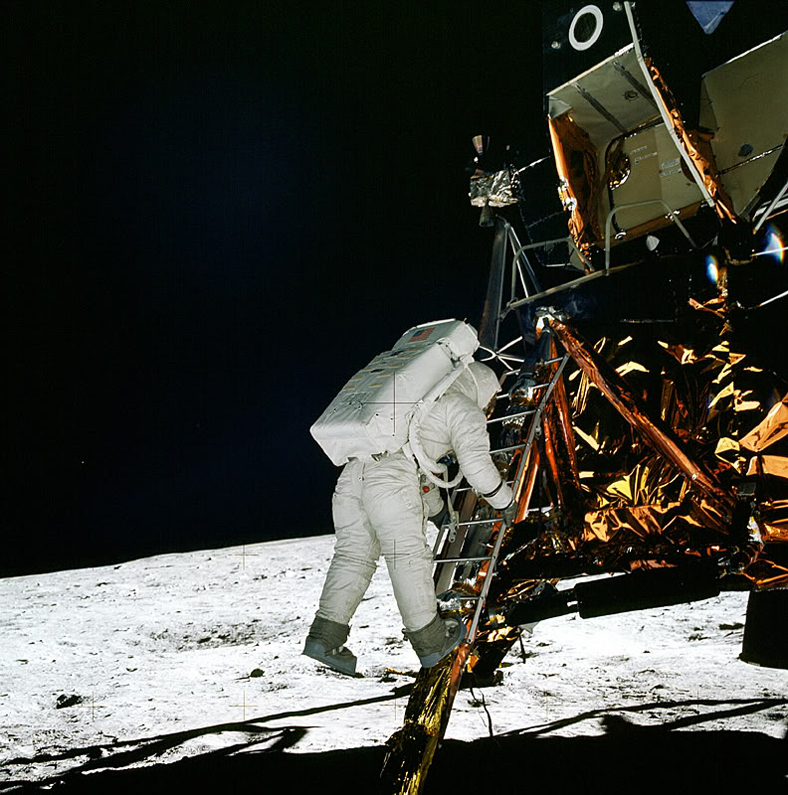
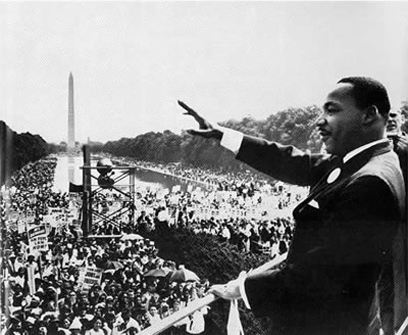 On August 28, 1963 on the steps of the Lincoln Memorial in Washington, D.C. Dr. Martin Luther King, Jr. delivered one of the most iconic speeches of the twentieth century, entitled “I Have a Dream,” as a part of the civil rights movement’s march on Washington for Rights and Freedom.
On August 28, 1963 on the steps of the Lincoln Memorial in Washington, D.C. Dr. Martin Luther King, Jr. delivered one of the most iconic speeches of the twentieth century, entitled “I Have a Dream,” as a part of the civil rights movement’s march on Washington for Rights and Freedom.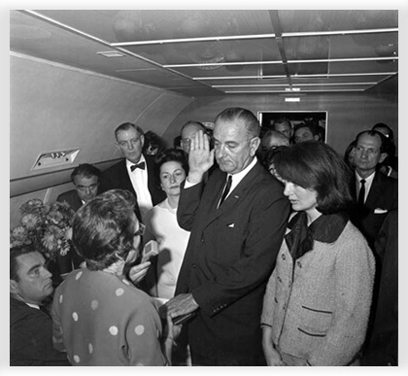 President John F. Kennedy
President John F. Kennedy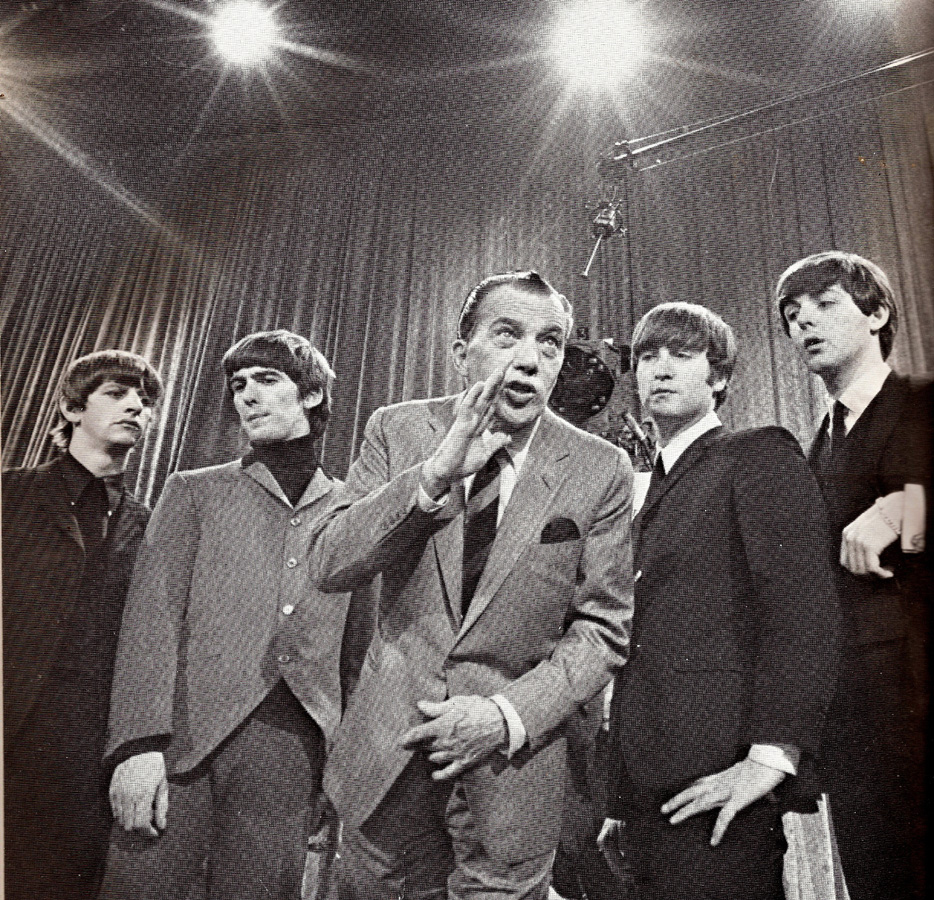 Some say that when the Beatles made their first appearance on American television on The Ed Sullivan Show on February 9, 1964, it was and remains a seminal event in the history of rock and roll music. Mass hysteria resulted wherever the Beatles appeared, thus “Beatlemania” ensued.
Some say that when the Beatles made their first appearance on American television on The Ed Sullivan Show on February 9, 1964, it was and remains a seminal event in the history of rock and roll music. Mass hysteria resulted wherever the Beatles appeared, thus “Beatlemania” ensued.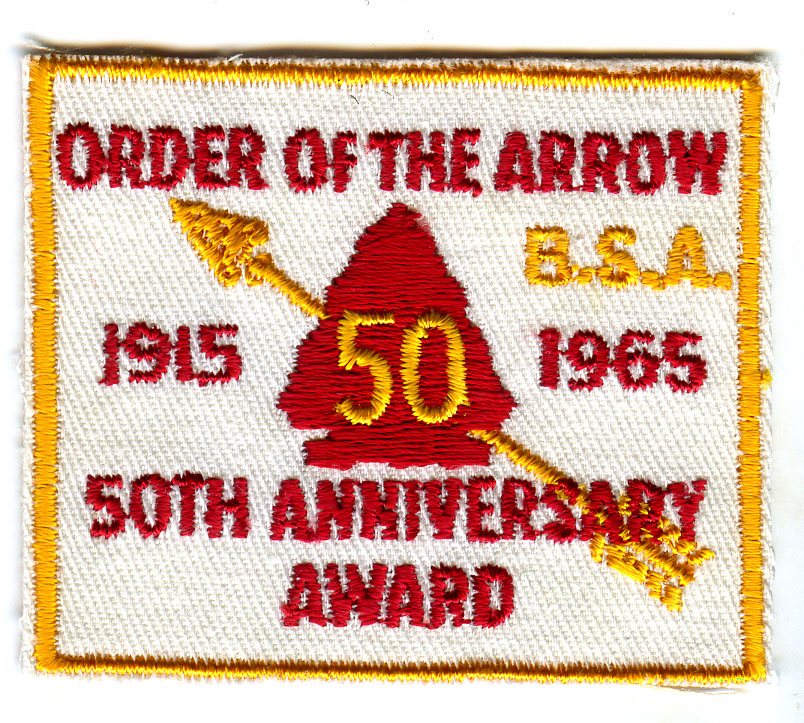 The Order of the Arrow (OA) celebrated its
The Order of the Arrow (OA) celebrated its 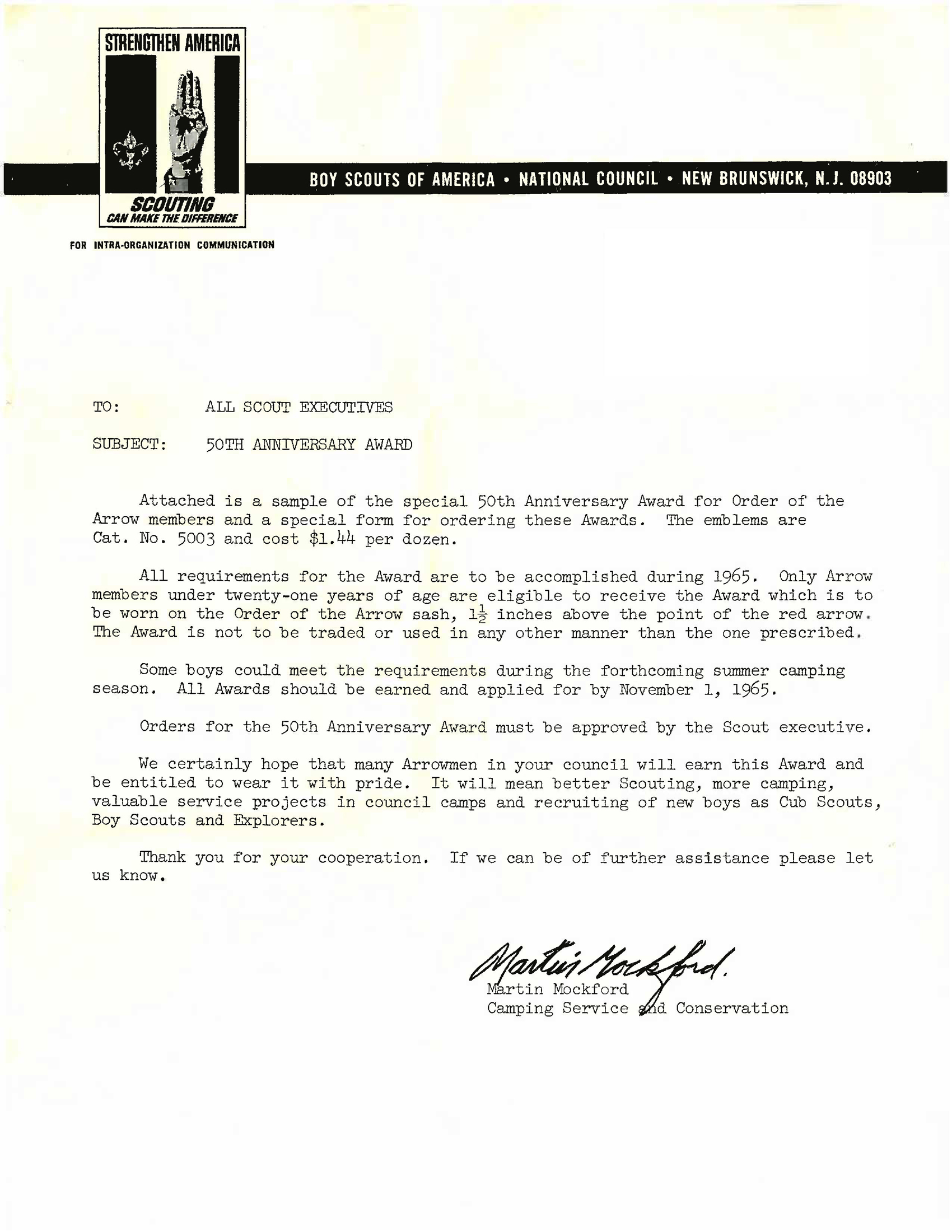 o recognize individual service, a 50th Anniversary Award was created for each Arrowman under twenty-one years of age who fulfilled specific requirements during the 1965 calendar year. These requirements were outlined on an official scorecard, and were to be completed and signed off by the Arrowman’s unit leader and lodge adviser prior to November 1. They included such things as active interest in the lodge and unit; attendance at summer camp; participation in an OA service project; rank advancement; and new member recruitment. There were 26,576 successful Arrowmen who received a special 50th Anniversary Award, and this cloth emblem was to be worn in the designated location on the Arrowman’s sash.
o recognize individual service, a 50th Anniversary Award was created for each Arrowman under twenty-one years of age who fulfilled specific requirements during the 1965 calendar year. These requirements were outlined on an official scorecard, and were to be completed and signed off by the Arrowman’s unit leader and lodge adviser prior to November 1. They included such things as active interest in the lodge and unit; attendance at summer camp; participation in an OA service project; rank advancement; and new member recruitment. There were 26,576 successful Arrowmen who received a special 50th Anniversary Award, and this cloth emblem was to be worn in the designated location on the Arrowman’s sash.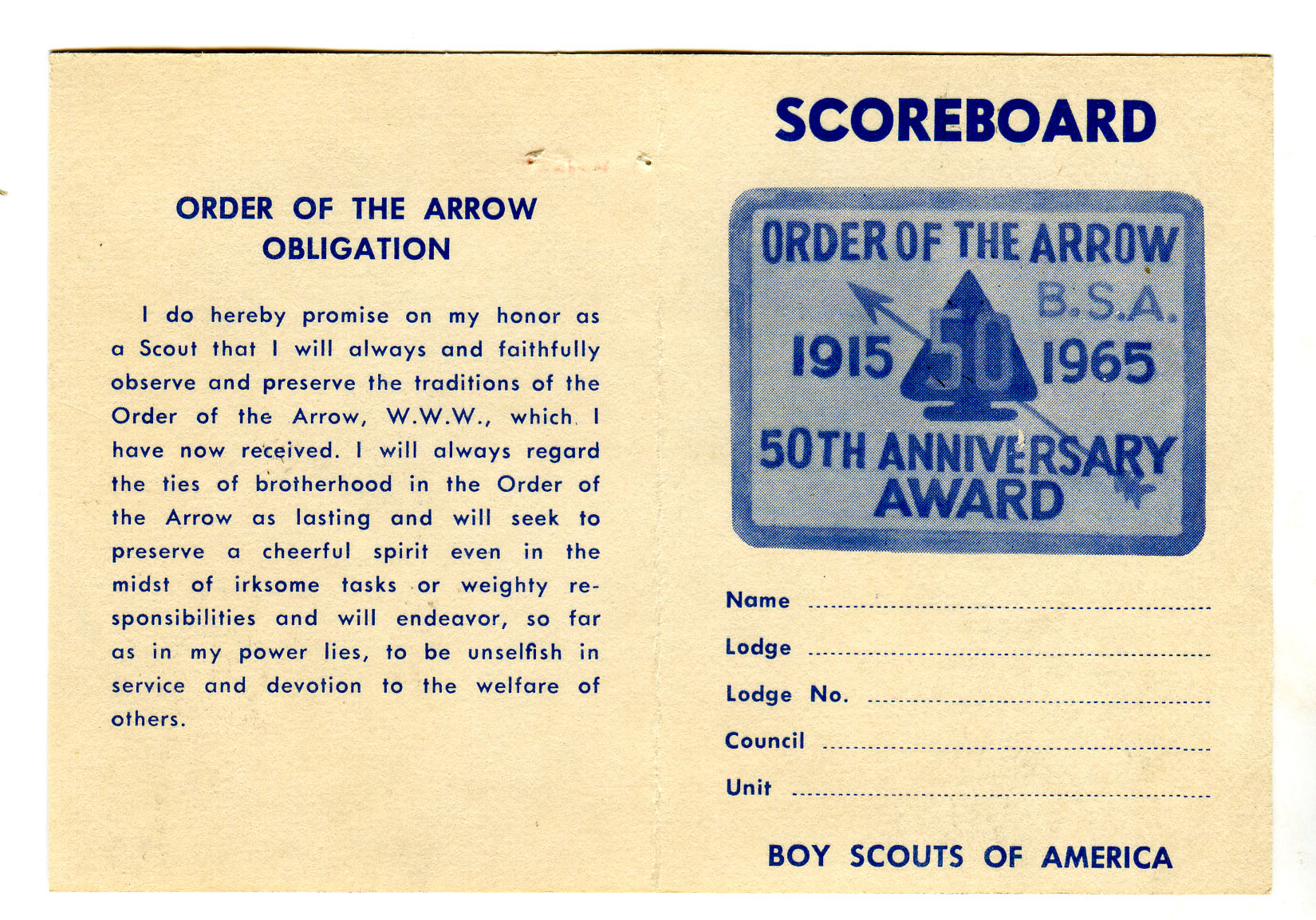 .
.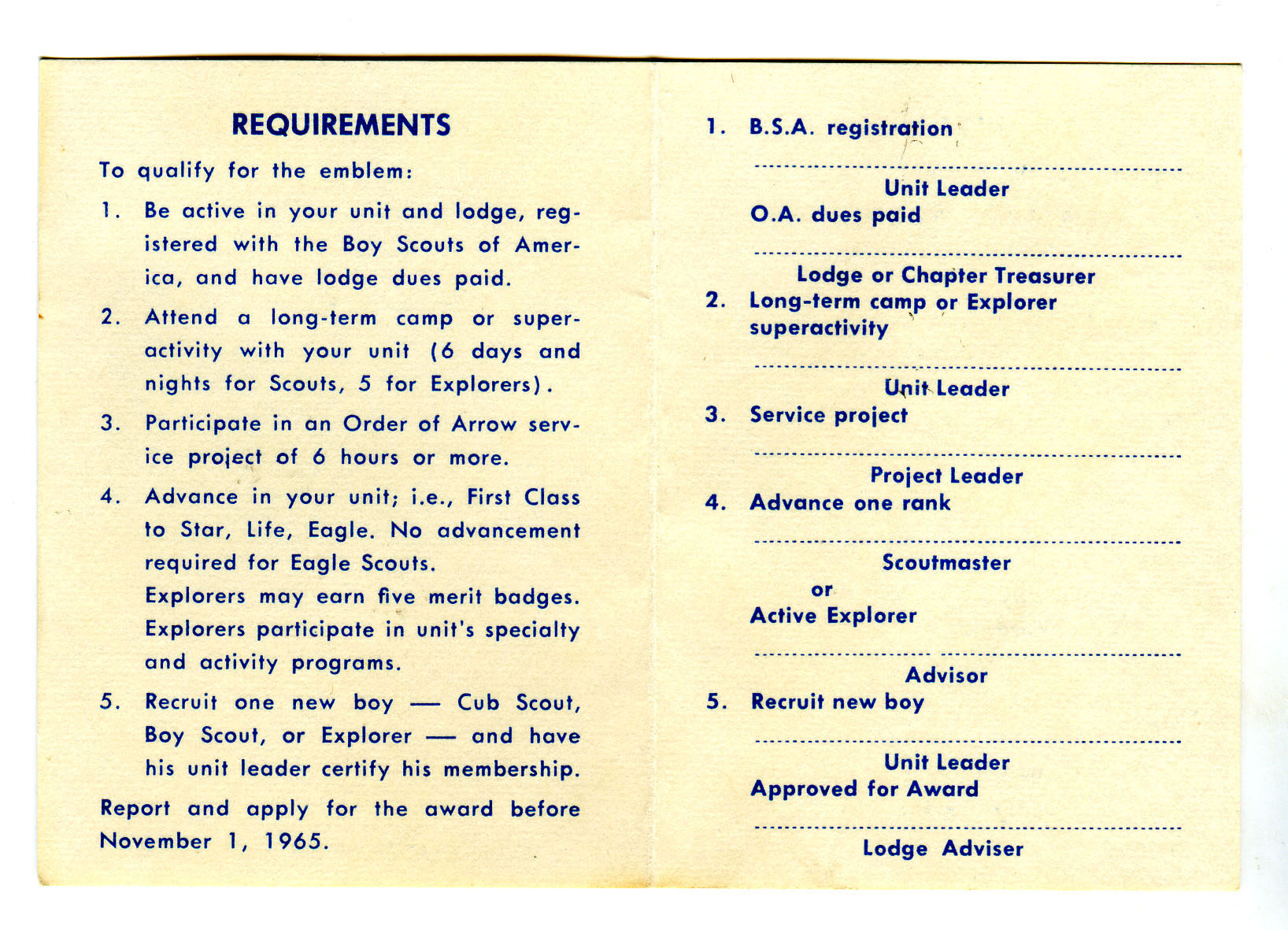
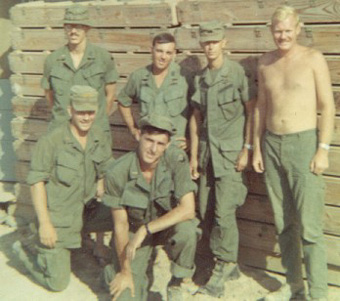 From 1957 to 1965, the war was mainly a struggle between the South Vietnamese army and Communist-trained North Vietnamese rebels known as the Viet Cong. During this time, the U.S. provided military advisors and China and the Soviet Union supported the Vietnamese Communists with war materials but not troops. The first U.S. combat troops entered Vietnam in March 1965 and most of the fighting was between North Vietnam and the United States. By 1969, the Vietnam War seemed endless, and the United States slowly began to withdraw troops.
From 1957 to 1965, the war was mainly a struggle between the South Vietnamese army and Communist-trained North Vietnamese rebels known as the Viet Cong. During this time, the U.S. provided military advisors and China and the Soviet Union supported the Vietnamese Communists with war materials but not troops. The first U.S. combat troops entered Vietnam in March 1965 and most of the fighting was between North Vietnam and the United States. By 1969, the Vietnam War seemed endless, and the United States slowly began to withdraw troops.